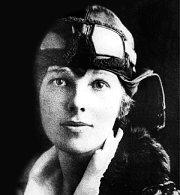1930 – 1939 World History
- 1930
- Britain, U.S., Japan, France, and Italy sign naval disarmament treaty. Nazis gain in German elections. Cyclotron developed by Ernest O. Lawrence, U.S. physicist. Pluto discovered by astronomers.
- 1931
- Spain becomes a republic with overthrow of King Alfonso XIII. German industrialists finance 800,000-strong Nazi party. British parliament enacts statute of Westminster, legalizing dominion equality with Britain. Mukden Incident begins Japanese occupation of Manchuria. In U.S., Hoover proposes one-year moratorium of war debts. Harold C. Urey discovers heavy hydrogen. Gangster Al Capone sentenced to 11 years in prison for tax evasion (freed in 1939; dies in 1947). Notorious Scottsboro trial begins, exposing depth of Southern racism. “The Star Spangled Banner” officially becomes national anthem.
- 1932
- Nazis lead in German elections with 230 Reichstag seats. Famine in USSR. In U.S., Congress sets up Reconstruction Finance Corporation to stimulate economy. Veterans march on Washington—most leave after Senate rejects payment of cash bonuses; others removed by troops under Douglas MacArthur. U.S. protests Japanese aggression in Manchuria. Amelia Earhart is first woman to fly Atlantic solo. Charles A. Lindbergh's baby son kidnapped, killed. (Bruno Richard Hauptmann arrested in 1934, convicted in 1935, executed in 1936.)
- 1933
- Hitler appointed German chancellor, gets dictatorial powers. Reichstag fire in Berlin; Nazi terror begins. Germany and Japan withdraw from League of Nations. Giuseppe Zangara executed for attempted assassination of president-elect Roosevelt in which Chicago mayor Cermak is fatally shot. Roosevelt inaugurated (“the only thing we have to fear is fear itself”); launches New Deal. Prohibition repealed. USSR recognized by U.S.
- 1934
- Chancellor Dollfuss of Austria assassinated by Nazis. Hitler becomes führer. USSR admitted to League of Nations. Dionne sisters, first quintuplets to survive beyond infancy, born in Canada. Mao Zedong begins the Long March north with 100,000 soldiers.
- 1935
- Saar incorporated into Germany after plebiscite. Nazis repudiate Versailles Treaty, introduce compulsory military service. Mussolini invades Ethiopia; League of Nations invokes sanctions. Roosevelt opens second phase of New Deal in U.S., calling for social security, better housing, equitable taxation, and farm assistance. Huey Long assassinated in Louisiana.
- 1936
- Germans occupy Rhineland. Italy annexes Ethiopia. Rome-Berlin Axis proclaimed (Japan to join in 1940). Trotsky exiled to Mexico. King George V dies; succeeded by son, Edward VIII, who soon abdicates to marry an American-born divorcée, and is succeeded by brother, George VI. Spanish civil war begins. Hundreds of Americans join the “Lincoln Brigades.” (Franco's fascist forces defeat Loyalist forces by 1939, when Madrid falls.) War between China and Japan begins, to continue through World War II. Japan and Germany sign anti-Comintern pact; joined by Italy in 1937.
- 1937
- Hitler repudiates war guilt clause of Versailles Treaty; continues to build German power. Italy withdraws from League of Nations. U.S. gunboat Panay sunk by Japanese in Yangtze River. Japan invades China, conquers most of coastal area. Amelia Earhart lost somewhere in Pacific on round-the-world flight. Picasso's Guernica mural.
- 1938
- Hitler marches into Austria; political and geographical union of Germany and Austria proclaimed. Munich Pact > Britain, France, and Italy agree to let Germany partition Czechoslovakia. Douglas “Wrong-Way” Corrigan flies from New York to Dublin. Fair Labor Standards Act establishes minimum wage. Orson Welles's radio broadcast War of the Worlds.
- 1939
- Germany invades Poland; occupies Bohemia and Moravia; renounces pact with England and concludes 10-year non-aggression pact with USSR. Russo-Finnish War begins; Finns to lose one-tenth of territory in 1940 peace treaty. World War II begins.(For detailed chronology, see World War II.) In U.S., Roosevelt submits $1,319-million defense budget, proclaims U.S. neutrality, and declares limited emergency. Einstein writes FDR about feasibility of atomic bomb. New York World's Fair opens. DAR refuses to allow Marian Anderson to perform. Gone with the Wind premieres.




